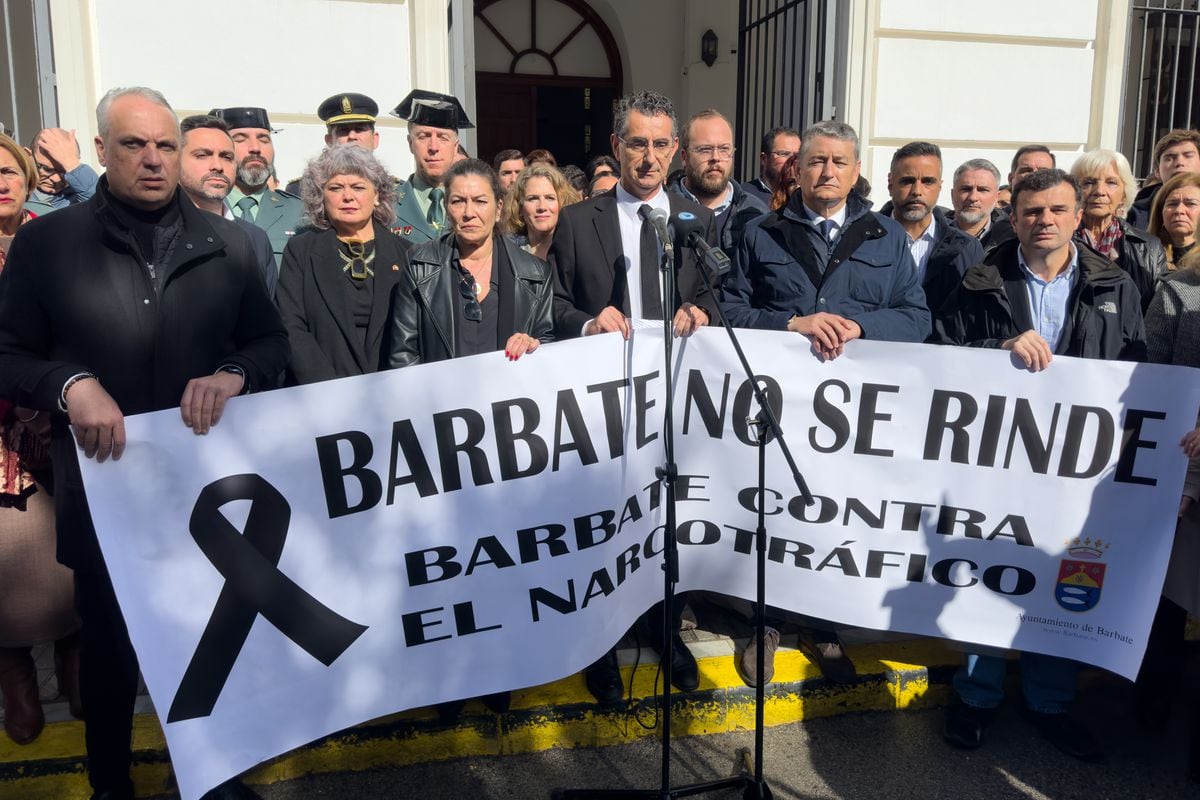The Francisco de Vitoria Judicial Association (AJFV), which with 930 members is the second with the most representatives in the career, has prepared a report to seek solutions to the work overload of the judges of Barbate and other municipalities on the Andalusian coast, which They have to combine the investigation of complex drug trafficking cases with the rest of civil, criminal and family matters.
The text, released this Tuesday, was made while speaking with judges and prosecutors in the area after the death, on February 8, of two civil guards run over by a drug boat.
After that event, the association points out, a great overload of work has been observed in these courts, which, with limited resources, have to deal with procedures with many investigated that end up taking forever.
The association proposes that the National Court take over investigations of large drug trafficking networks “regardless of the area in which they operate,” in addition to increases in material and human resources and legal reforms that free judges from part of the work they now have to assume. .
“The absence of sufficient personal and material resources, no matter how many times it is repeated, constitutes an unaffordable impediment that prevents the State, as guarantor of legal security and the rule of law, from fulfilling its function,” the text states.
The assumption by the National Court of many of the drug trafficking cases that are now being heard in local courts is a demand defended from different areas.
Among them, the State Attorney General's Office, which demanded in its last annual report that all “really relevant and complex” cases of drug trafficking (and money laundering derived from this crime) end up in the National Court.
Currently, central courts investigate drug trafficking crimes committed by organized groups, but only when they produce effects in different provinces, but not those that operate in a single province, not even when the network extends abroad.
“We believe that this regulation has been surpassed in the 21st century,” states the text of the AJFV report, which warns that, if the jurisdiction to investigate this matter were attributed to the National Court, judges and Prosecutors assigned to these populations “suffer the climate of oppression” that many of them claim to suffer.
“We have already experienced similar situations with ETA terrorism in the past and such a solution has proven effective.
This distribution of powers would ultimately avoid the temptation of trying to condition members of the judicial career in the investigation and prosecution of this type of crimes,” adds the text, which has been prepared by speaking with judges and prosecutors in the area.
Another advantage of this change, according to the AJFV, is that it would allow a degree of specialization in drug trafficking crimes that is not compatible with the functions of the courts of towns like Barbate, which are mixed courts that resolve both civil and criminal and family.
Furthermore, procedures linked to drug trafficking generally imply an increase in the workload as they are cases with many investigated, which prevents the judge from carrying out the rest of the matters with acceptable speed.
Likewise, the fact that the National Court was competent would allow for “more direct” action on more complex frameworks.
“A unity of action would be followed along the coastline, impossible to achieve at this time as it depends on the individual line of investigation followed in the mixed court in question in each case,” the text states.
The report also advocates, among other measures, reforming the Criminal Procedure Law and the Organic Law of the Judiciary to prevent the filing of appeals against any decision made by the instructor from delaying decision-making;
establish a supplement of danger or hardship in areas that are considered especially conflictive;
and implement material and human reinforcements both in the courts and in the police forces of the most affected municipalities.
Subscribe to continue reading
Read without limits
Keep reading
I am already a subscriber
_

